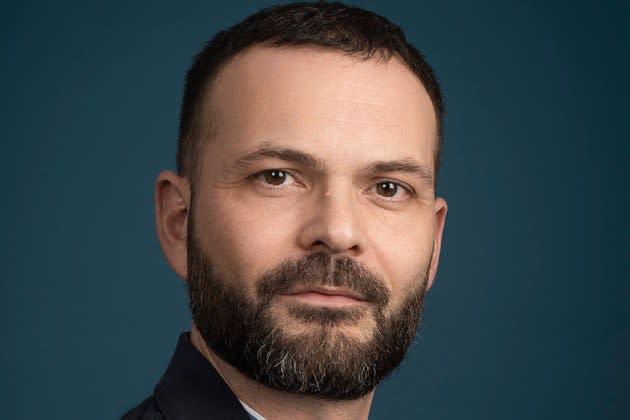Marrakech Film Fest Artistic Director Talks This Year’s ‘More Sober’ Edition and Fostering New Generation of MENA Filmmakers

The Marrakech Film Festival’s 20th edition kicks off on Friday with Richard Linklater’s action comedy “Hit Man” as its gala opening, Mads Mikkelsen being feted, and a rich roster of stars and top talents supporting a panoply of cinema from the African continent and the Arab world.
The event will run Nov. 24-Dec. 2 in the ancient Moroccan city despite the Israel-Hamas conflict that has caused cancellations of several other fests in the region, as well as the earthquake that hit the country in September. It’s being held in a more sober form in a spirit of resilience to keep the flame of filmmaking burning in the region, which is cinematically vibrant but has a crucial need for connection with geographically distant countries in Africa and the Arab world as well as with the international circuit at large.
More from Variety
Variety spoke to the fest’s artistic director Rémi Bonhomme – a former driving force behind Cannes’ Critics Week – about the importance of Marrakech as a platform to “foster this young generation of Moroccan, Arab and African filmmakers.”
Tell me about your determination to forge ahead with the festival.
In these times of tensions and divisions, we really believe that it is more important than ever to preserve the spaces for dialogue offered by film festivals. And we reshaped the festival a bit, to create a more sober form for this edition. So there will be no festivities. But of course, what is at the core of the festival will remain. Which is, of course, showing the films, welcoming the artists from all over the world, and the audience that is eager to meet with them.
And so the Marrakech Film Festival, despite these circumstances, will keep the same spirit that it’s had over 20 editions, which is [to be] a quite unique place where you can meet both the big industry names who have been very faithful to the event since the very start, and who come back very often because the festival has built a very strong relationship with lots of personalities. And at the same time, being a place that gives a very important and majestic platform to young talents from all over the world, through the competition dedicated to first and second films, and through the attached workshops that help foster this young generation of Moroccan, Arab and African filmmakers.
It seems that Marrakech is raising its profile this year as a launching pad for MENA region premieres.
We are working more with local distributors [both indie and non]. Among other titles, this year we are launching Alexander Payne’s “The Holdovers,” which will be released by Universal here in Morocco and in several territories of the Arab world. And we have a Senegalese film in competition, “Banel & Adama,” that is getting distribution through Pathé BC Afrique. Also in competition, we have the world premiere of a film from Madagascar, “Disco Afrika: A Malagasy Story.” I’m very glad that we have this world premiere because Luck Razanajaona [the director] studied cinema here in Marrakech and we supported the film through the Atlas workshops, and now it’s making it’s world premiere here before traveling in Europe.
You also have the MENA premiere of Matteo Garrone’s “Io Capitano,” about two young African men and their infernal journey to immigrate to Europe — a theme that’s bound to resonate.
It was just as important for Matteo as it was for us to have the MENA premiere of the film here. “Io Capitano” was partially shot in Morocco and Matteo is a regular at the festival. He will be coming with the film’s two main actors – one being Seydou Sarr, who won the best emerging actor in Venice – and a Senegalese young man who inspired him and advised him when writing the script.
Marrakech is one of the only international festivals of this scale where screenings and masterclasses are free and open to the public. Does this aspect help attract talents such as Jessica Chastain, who is presiding over the fest’s main jury, or Tilda Swinton and Willem Dafoe?
The artists who come love Morocco and love meeting the audience. And what we see here is this urge on the part of young people to not only come and watch films, but to be very, very committed in the Q&As during the masterclasses. Last year, Jim Jarmusch did a masterclass in front of 250 people, and I think most of them were around 20-25 years old, and I’m not sure he’s had this experience anywhere else.
This interview has been edited and condensed for clarity.
Best of Variety
Sign up for Variety’s Newsletter. For the latest news, follow us on Facebook, Twitter, and Instagram.

 Yahoo News
Yahoo News 